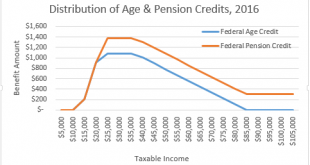On Monday, the Keep Ontario Working coalition spearheaded by the Ontario Chamber of Commerce released an analysis of the impacts of Bill 148 in Ontario, which will introduce a $15 minimum wage by 2019 and a host of other employment standards improvements. The analysis raised many red flags: it focused only on costs, predicting very large negative impacts out of line with decades of research in economics and appeared to include a significant math error. What’s more, the analysis was...
Read More »Ease up on shareholder payouts, pay your workers more instead
With Alberta and Ontario raising their minimum wage to $15 per hour, and BC possibly following suit soon, the usual suspects have begun their predictable howling about how this is a bad time, or it’s happening too fast, or how it will simply hurt those we are trying to help. It is true that increasing the minimum wage may result in slightly fewer jobs for teenagers, and slightly fewer hours for other workers – but the evidence shows that overall the effect is positive, especially for low...
Read More »Ten Things to Know About Social Assistance in Alberta
I’ve just written a blog post about social assistance in Alberta. Points raised in the post include the following: -It’s very difficult to quality for social assistance in Alberta (this is also the case in all other provinces and territories). Reasons why are discussed in this previous blog post of mine. -In the 1990s, there were changes to the rules governing social assistance in Alberta. From that point on, it became even harder to qualify for social assistance in Alberta. -In Alberta,...
Read More »Income transfers, means testing, and universality, oh, my!
Overall, the NDP leadership race has provided a lot for progressive economists to be excited about. From progressive tax reform to fair wages and worker’s rights, poverty fighting income transfers to new universal social programs, the four leadership candidates have put substantive and laudable social democratic proposals on the table. Unfortunately, the last debate waded into unhelpful – if not disingenuous – exchanges on income transfers, means testing and universality, particularly on the...
Read More »Unwarranted Gloom and Doom: The IMF on Canada and NAFTA
To read the media today, one would think that NAFTA is a keystone of Canadian prosperity and that renegotiation could lead to a national economic disaster. That view has already been rebutted in a report by Scott Sinclair for the Canadian Centre for Policy Alternatives. He finds that a reversion to WTO tariffs and trade rules would have only a modest impact, albeit that some auto and agricultural exports would suffer. The key take-away is that we can afford to walk away from a bad deal if...
Read More »Book review: Understanding spatial media
I’ve just reviewed a new book about spatial media (and have written it from the vantage point of somebody working in Canada’s homelessness sector). One point raised in the blog post is the fact that the language used when enumerating persons experiencing homelessness has an impact on policy discussions. One point raised in the book itself is the fact that large subgroups of the world’s population have little if any Internet access—in Canada, this is particularly relevant to persons...
Read More »Second Annual Canadian Homelessness Data Sharing Initiative
I’ve just blogged about the Second Annual Canadian Homelessness Data Sharing Initiative. This is now an annual event that takes place in Calgary. It’s co-sponsored by the Calgary Homeless Foundation and the University of Calgary’s School of Public Policy. A summary of the inaugural event (which took place in May 2016) can be found here, while the link to the just-published summary of the 2017 event is here. Enjoy and share:
Read More »Economists support $15 minimum wage in Ontario
We, the undersigned economists, support the decision to increase the minimum wage in Ontario to $15 an hour. Raising the wage floor makes good economic sense. Today, Ontario’s minimum wage is $11.40 per hour. Adjusted for inflation, this is barely one dollar higher than its value in 1977. Yet over the same four decades, the average productivity of workers has increased by 40%. And the prevalence of minimum wage work is spreading. Around 1 in 10 Ontario workers make minimum wage today, with a...
Read More »The NDP and Old Age Security
NDP leadership candidate Jagmeet Singh has proposed (with few details) to reform the current Old Age Security system by integrating Old Age Security (OAS) and the Guaranteed Income Supplement (GIS.) “A Jagmeet Singh-led government will implement the Canada Seniors Guarantee to ensure that no Canadian senior has to live in poverty. The Canada Seniors Guarantee will combine a number of existing seniors’ benefits into a single, income-tested benefit. This includes Old Age Security (OAS), the...
Read More »Canada Lags in Job Quality
The 2017 OECD Employment Outlook provides an assessment of member country performance in terms of the quantity and quality of employment as judged by a new set of key indicators. Overall, we do well in terms of job quantity. The employment rate (the proportion of the working age population with jobs) stands at 72.5% compared to an OECD average of 66.4%. However, the Scandinavian countries rank higher for this indicator (eg Sweden, 75.5%.) It is interesting to note that the employment rate in...
Read More » Progressive Economics Forum
Progressive Economics Forum


